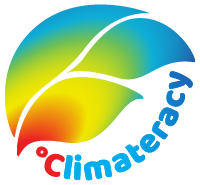Bibliography
Barron, B., & Darling-Hammond, L. (2008). Teaching for Meaningful Learning: A Review of Research on Inquiry-Based and Cooperative Learning. Book Excerpt. George Lucas Educational Foundation. https://files.eric.ed.gov/fulltext/ED539399.pdf
Bjork, R. A., Dunlosky, J., & Kornell, N. (2013). Self-regulated learning: Beliefs, techniques, and illusions. Annual review of psychology, 64, 417-444.
Chi, M. T., & Wylie, R. (2014). The ICAP framework: Linking cognitive engagement to active learning outcomes. Educational psychologist, 49(4), 219-243.
Condliffe, B. (2017). Project-Based Learning: A Literature Review. Working Paper. MDRC. Retrieved from: https://files.eric.ed.gov/fulltext/ED578933.pdf
Jacobson, M. J., Markauskaite, L., Portolese, A., Kapur, M., Lai, P. K., & Roberts, G. (2017). Designs for learning about climate change as a complex system. Learning and instruction, 52, 1-14.
Hickman, C., Marks, E., Pihkala, P., Clayton, S., Lewandowski, R. E., Mayall, E. E., ... & van Susteren, L. (2021). Climate anxiety in children and young people and their beliefs about government responses to climate change: a global survey. The Lancet Planetary Health, 5(12), e863-e873. DOI:https://doi.org/10.1016/S2542-5196(21)00278-3
Mahmud, S. N. D. (2017). Engaging head, heart and hands: Holistic learning approach for education for sustainable development. International Journal of Learning and Teaching. 9(2), 298-304.
Monroe, M., Plate, R., Oxarart, A., Bowers, A., and Chaves, W. (2017). Identifying effective climate change education strategies: A systematic review of the research. Environmental Education Research, https://doi.org/10.1080/13504622.2017.1360842
O’Flaherty, J. & Liddy, M. (2017): The impact of development education and education for sustainable development interventions: a synthesis of the research, Environmental Education Research, DOI: 10.1080/13504622.2017.1392484
Ojala, M. (2018-19). Eco-anxiety. RSA Journal, 164(4) pp. 10-15. URL: https://www.jstor.org/stable/10.2307/26798430
Ryan, R. M., & Deci, E. L. (2000). Intrinsic and extrinsic motivations: Classic definitions and new directions. Contemporary educational psychology, 25(1), 54-67.
Sinha, T., & Kapur, M. (2021). When problem solving followed by instruction works: Evidence for productive failure. Review of Educational Research, 91(5), 761-798.
Sobel, D. (2004) Place-based education: Connecting classroom and community. Nature and Listening, 4(1), 1-7.
Soderstrom, N. C., & Bjork, R. A. (2015). Learning versus performance: An integrative review. Perspectives on Psychological Science, 10(2), 176-199.
Thompson, T. (2021) Young people’s climate anxiety revealed in landmark survey. Nature 597, 605; doi: https://doi.org/10.1038/d41586-021-02582-8. Retrieved from: https://www.nature.com/articles/d41586-021-02582-8
About Instructor



